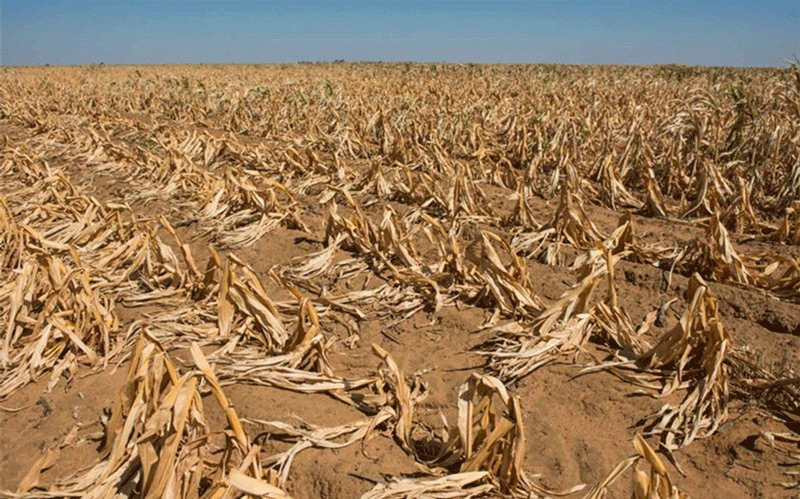
LAST month, global leaders, civil society organisations, private sector, and academia, among others met in Kenya’s capital, Nairobi, to confront Africa’s climate challenges and proffer sustainable solutions. At the end, the Nairobi Declaration was adopted, which forms the basis for Africa’s common position in the global climate change process prior to COP28 and beyond.
While climate change is a global issue that affects all countries, African countries face a disproportionate burden and risks from climate change-related, unpredictable weather events and patterns.
These impacts include rising temperatures, changing rainfall patterns, increased frequency and intensity of extreme weather events, rising sea-level, and loss of biodiversity. The effects have severe consequences for African economies and livelihoods of millions of people.
Historically, the global south has contributed insignificantly to global greenhouse gas emissions compared to their counterparts in the global north.
Now Africa is bearing the burden of adapting to and mitigating the impacts of climate crisis. That the continent has limited financial capacity, poor infrastructure, poverty-ridden, and is politically instable has exacerbated an already precarious situation. That said, echoes are growing in some quarters that the continent, on the basis of the polluter pay principle, is entitled to climate compensation or reparations from the developed nations that are primarily responsible for the current state of the climate crisis. While it is impossible to quantify the damage in monetary terms, reparations are aimed at compensating for the damages caused by climate change and more so to capacitate African countries in their adaptation and mitigation efforts.
Climate justice
The issue of climate reparations is located in the polluter pay principle. All is done in search of climate justice.How does it work?
Developed countries, which have historically contributed the most to global greenhouse gas emissions and benefited the most from industrialisation have the moral and financial obligation to provide financial and technological support to developing countries to help them adapt to climate impacts.
- COP26 a washout? Don’t lose hope – here’s why
- Out & about: Bright sheds light on Vic Falls Carnival
- COP26 a washout? Don’t lose hope – here’s why
- Out & about: Bright sheds light on Vic Falls Carnival
Keep Reading
The concept of climate reparations is rooted in the principles of climate justice, which emphasises the need for equitable distribution of the costs and benefits of climate action.
UN speaks in reparations
The idea of climate reparations is not entirely new. It has gained traction in recent years as the impacts of climate change have become more apparent.
In 2019, the United Nations Secretary-General António Guterres called for developed countries to provide climate reparations to developing countries, stating that “developed countries have a collective responsibility to provide financial and technological support to developing countries to help them adapt to the impacts of climate change”.
Why now?
Climate change is causing significant loss and damage across Africa and a delay in action is suicidal. From the devastating floods in Libya to droughts in the Horn of Africa, the continent is under siege.
The continent is facing crop failures, water scarcity, displacement of communities, and is starring increased vulnerability to diseases. These impacts add economic, social, and environmental burden that most African countries cannot bear without external assistance. Reparations are meant to help address these losses and provide resources for adaptation measures.
Historically, countries in the global north have been the biggest contributors to greenhouse gas emissions due to their advanced industrialisation processes. This has resulted in the accumulation of emissions causing the depletion of the ozone layer, which is responsible for the global warming.
The argument is that developed countries should take responsibility of their emissions and provide financial and or technical support to capacitate Africa cope with the consequences of their actions.
It is a fact that African countries lack the necessary resources, technology, and expertise to effectively adapt to and mitigate climate change.
What it means is that reparations could be used to capacitate Africa in the adoption of clean and renewable energy, build climate-resilient infrastructure, adopt modern agricultural practices and in disaster preparedness. This would enable the continent to better respond well to the climate crisis.
However, while Africa has the moral high ground to demand for climate change reparations, the continent should be prepared to answer questions on shared responsibility.
Climate change is a global issue; it requires collective action so focusing entirely on reparations may hinder cooperation and slow down progress towards finding sustainable solution to the climate crisis.
Based on the foregoing arguments, Africa can demand climate change reparations based on the disproportionate impacts it faces due to historical emissions from developed countries and the loss and damage already experienced.
However, the issue of climate change reparations is complex and subject to ongoing debates and negotiations at international fora.
- Chiduku is a communications, public policy and governance expert with interests in agriculture and environmental issues. He writes in his personal capacity. — cchiduku@gmail.com; +263775716517.






